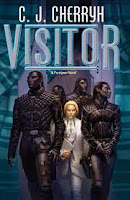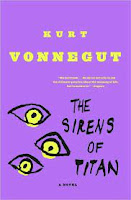One of the devices in China Mieville's Iron Council is the “neverending train”. Rails placed just in front of the train as it moves across the landscape, the concept feels both dangerous (what if they workmen place a rail wrong?) and yet free (the train is not subject to an existing rail system; it can go anywhere). I feel the same about Robert Louis Stevenson's prose—his 1886 novel Kidnapped an excellent example.
Consistently and forever able to pull the right word out of the bag, sentence by sentence, paragraph by paragraph, Kidnapped makes for an exciting adventure. His mother dead long ago and his father recently deceased, we meet 17-year old David Balfour as he is heading to his uncle's house to learn of his inheritance—his father having kept the knowledge secret from him. The journey discomforting, meeting people on the road he comes to expect something bizarre when meeting his uncle. And indeed he encounters a strange man in a decrepit house. But the uncle has even more devious plans than David might think. Visiting a sailing ship the next day on business, David soon finds himself in unexpected quarters and with an unexpected new direction in life.












